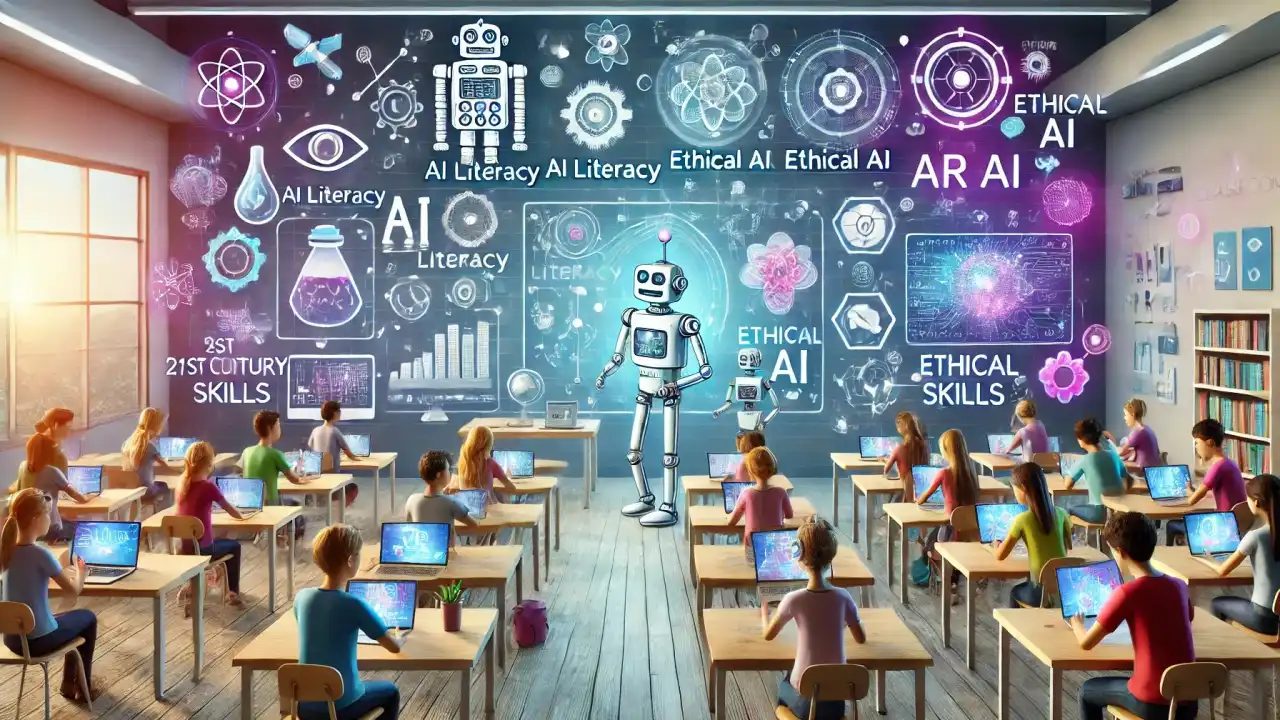
AI Literacy in Schools: Preparing Students for the Age of Artificial Intelligence
Monday, July 15, 2025
Hello students, educators, and parents from around the world,
As artificial intelligence becomes a core part of our daily lives, a new kind of literacy is emerging—AI literacy. In 2025, schools in many countries are beginning to integrate AI education into their curricula. From understanding how algorithms work to ethical discussions on machine decision-making, students are being prepared for a future where AI will shape nearly every profession. In the “Activities and Announcements” section of our website, we explore the rise of AI education, how it’s transforming classrooms globally, and how students can benefit from becoming AI-literate citizens. Let’s dive into the future of learning.
What is AI Literacy?
AI literacy goes beyond knowing how to use a computer. It includes understanding the basic concepts of machine learning, data privacy, algorithmic bias, and the social impact of AI systems. In 2025, countries like Finland, Singapore, and the United States have already launched national initiatives to introduce AI education in K-12 schools. For example, in Canada, students in grade 10 now learn how neural networks recognize patterns in data.
This shift is similar to how digital literacy became essential two decades ago. Today, understanding how AI systems operate is becoming just as crucial. The OECD recommends including AI literacy in both STEM and humanities courses to create a well-rounded perspective in young learners.
Why It Matters for Students
- Career Readiness: AI is already transforming careers in medicine, law, finance, and education. Students with a basic knowledge of AI tools have a competitive edge.
- Critical Thinking: Learning how algorithms make decisions helps students evaluate online information critically.
- Ethical Awareness: Discussions on AI bias, surveillance, and privacy train students to think about technology’s role in society.
- Interdisciplinary Learning: AI education connects math, computer science, philosophy, and social studies into one rich learning experience.
For instance, a student learning about image recognition in science class can also debate facial recognition policies in a social studies class. This integration of knowledge is what makes AI literacy powerful and practical.
How to Start Learning AI
- Explore Online Platforms: Websites like AI4K12, Code.org, and Google’s Teachable Machine offer beginner-friendly tools.
- Join School Projects: Participate in school clubs or competitions focused on robotics, machine learning, or ethical tech.
- Talk to Teachers: Ask your science or IT teacher if your school is planning to introduce AI-related content.
- Use Real-World Examples: Learn how AI is used in healthcare, transportation, and climate science to understand its real impact.
The Role of Educators and Parents
Teachers play a critical role in guiding students through complex topics like data ethics and algorithmic transparency. In 2025, many schools offer professional development to help teachers integrate AI topics into their lessons. Parents, on the other hand, can encourage curiosity by discussing how AI works in their smartphones, homes, and cars. Supporting students in asking questions—and seeking answers—can make a lasting impact.
Final Word
In 2025, AI is no longer science fiction—it’s a part of everyday life. Schools that prepare students to understand and question AI will help create a more thoughtful, skilled, and responsible generation. Dear students, explore the tools, ask the questions, and never stop learning. Teachers and parents, join the conversation and empower your learners. Share your AI learning experiences and thoughts with us—we look forward to reading your comments on our website.



